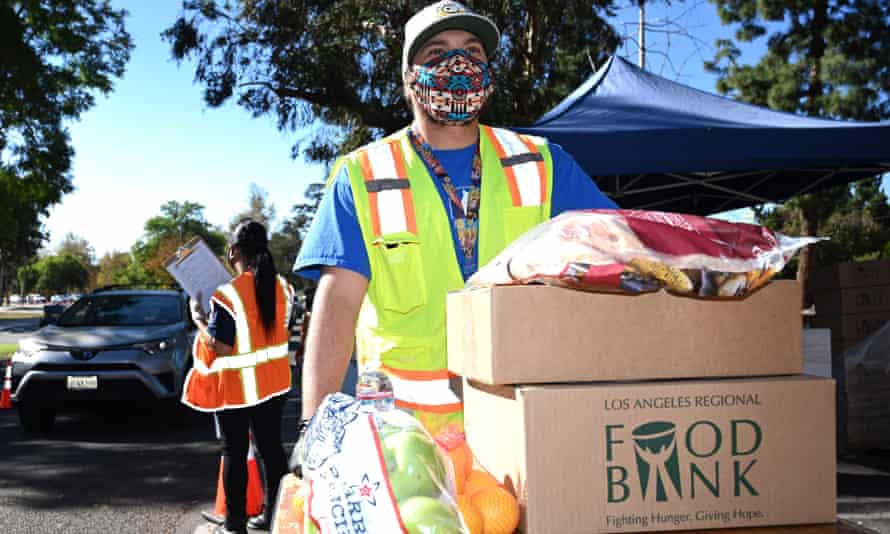The UN summit on food systems took two years to plan. It’s offered nothing to help feed families
As the UN food systems summit takes place on Thursday, governments can do much more, writes Michael Fakhri, UN special rapporteur on the right to food

The role of the UN’s dozens of independent experts, or special rapporteurs, is to report and advise on various human rights. My role revolves around the right to food – which is under enormous threat.
The world’s food systems have been failing people for a long time. The climate crisis is ravaging the planet, biodiversity diminishes every day and food insecurity is on the rise.
The Covid-19 pandemic has highlighted what we have known for decades – hunger, malnutrition and famine are not caused by inadequate amounts of food. They are caused by the political failures that restrict people’s access to adequate food.
Today, the secretary general is convening a UN summit on food systems. The event took around two years to prepare and I was an independent official adviser.
Let’s start with what the summit has achieved. It has successfully turned the attention of governments to developing national food plans that could be transformative. The summit preparation process, meanwhile, has attracted thousands of people to share and develop their ideas on how to transform food systems.
However, the summit has unfortunately left many people feeling disappointed, including other UN human rights experts who participated in its preparation. In response, thousands have organized their own people’s summit and counter-mobilization over the past few days.
Distressingly, the food systems summit has offered governments nothing substantive to tackle the devastating impact of the Covid-19 pandemic and the food crisis that it triggered. The summit has offered people nothing to help overcome their daily struggles to feed themselves and their families.
We must do better.
I believe that how people, businesses and governments respond to the current food crisis will be what transforms our food systems for the future. The key is to make sure that how we respond to the pandemic sets us on a path for a more just and flourishing food system as soon as possible.
Even at the peak of the pandemic, the greatest threat to food security and nutrition was not because food was unavailable. Many people were not eating or not eating well because they lost their livelihood or home, could not afford to buy good food and had inadequate social protection. Famine and the risk of famine struck a growing number of communities because of armed conflicts and financial instability.
Turning political energy into action
Within the UN system, the Committee on World Food Security (CFS) is the only place where governments and people are working to tackle the pandemic and current food crisis. The CFS is where the world’s governments, civil society organizations, international organizations, businesses and experts come together and negotiate global food policy guidelines. It is one of few such bodies that prioritize a human rights-based approach. Through the Civil Society and Indigenous Peoples’ Mechanism (CSM), people’s organizations have an effective seat at the CFS table. The CSM is an autonomous space that allows different food producer organizations, labor unions, Indigenous peoples and advocacy organizations to work together and shape the CFS’s policies.
The CFS is holding its annual meeting on 11-14 October. This year it will be entirely virtual, and any organization can sign up to attend. It will be there that the governments and organizations will exchange ideas about the summit. It will be there that CFS’s panel of eminent science and policy experts will showcase their latest UN report on the pandemic and food crisis and recommend what to do in response. And hopefully, it will be there that the world’s governments will decide to cooperate and devise a multilateral plan on how to overcome the food crisis.
The reason I say “hopefully” is because a small number of powerful governments have been reluctant to cooperate with others to tackle the food crisis. Nevertheless, a growing coalition of governments, international organizations, food producer organizations, labor unions and Indigenous peoples have come together to work in solidarity through the CFS to form an informal “Group of the Committed”. They will be holding an online seminar on 30 September to discuss why a globally coordinated response to the food crisis is necessary, what existing measures are working, and identify what it is to be done. The seminar is open to the public and the details of the seminar are still being finalized. But I have already been invited to facilitate that final discussion on what a globally coordinated policy guide would look like.
In times like these, human rights can sound like empty words, repeated by those with power to justify their plans. But human rights start with the power that people already have. People continually organize and mobilize to fight against inequitable food systems and assert their human rights, forcing governments to respond accordingly. Everyone can pressure their national governments to commit to a human-rights based and multilateral response to the food crisis. People’s organizations can join the CSM to work with others and amplify their demands on a global stage. National leaders can use the CFS to encourage others to cooperate. Come October, we will see if this political energy can be converted into political action.
-
Michael Fakhri is the UN special rapporteur on the right to food. He is also a professor at the University of Oregon School of Law.
